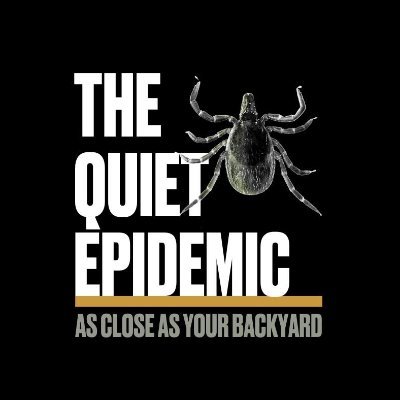19
Feb
2018
Response to Ministers Barrette and Charlebois

Response to the statements made by Ministers Barrette and Charlebois regarding Lyme disease during the press conference at the Assembly on February 7, 2018, sent to Ministers Barrette, Charlebois, and all members of the Commission of Health and Social Services.
On behalf of its members and the over 9,000 signatories of the petition “Establishment and Implementation of a Lyme Disease Action Plan,” AQML expresses great disappointment at the response from Ministers Gaétan Barrette and Lucie Charlebois. By making these statements, they imply that the reality experienced and denounced by sick individuals and members of the scientific community holds no value in their eyes. They seem more concerned with reassuring the public and giving the illusion that the situation is well managed, which is false. This represents a willful denial that contradicts their responsibility in healthcare. This attitude endangers the health of thousands of citizens.
It is false to believe that Lyme disease, a serious and complex tick-borne illness, is well understood and effectively managed by the Quebec medical community. Contrary to what is often conveyed, it is not easily treated, and patients do not always recover quickly. Numerous rigorous scientific data and patient testimonies supporting this are on the rise.
It is not enough to map reported cases or provide a brief online training for this disease to be properly managed by the Ministry of Health and Social Services.
The training in question does not take into account the scientific advancements on the subject or the many aspects of the disease. It guides healthcare professionals in the wrong direction to the detriment of patients. It perpetuates outdated diagnostic criteria that even contradict the statements of the Public Health Agency of Canada. Our doctors lack the necessary expertise and experience to diagnose and treat this complex illness. The tools they have keep the vast majority of patients in intolerable situations. Suffering, disability, medical mismanagement, misdiagnosis, distress, despair, and the deterioration of their quality of life—both physically, psychologically, and economically—overwhelm the citizens who are victims of this condition.
To invoke the notion of “quackery” to discredit individuals who claim their health has improved through treatments not authorized in Quebec is overly simplistic. Similarly, labeling a service as fraudulent simply because it involves compensation is misguided. Professionalism exists even within a private healthcare system. The history of medicine illustrates this; it shows that established knowledge often dismisses new insights as impostures at first glance. Our neighbors, the United States, have enacted laws in over a dozen states allowing doctors to legally diagnose and treat Lyme disease differently from the standard protocols used. Patients are then able to regain better health. Evidence-based scientific data on this subject is available. All the medication used for these types of treatments is accessible in Canada; it is merely restricted by an outdated protocol that has now been removed from official government guidelines in the U.S.
AQML continues to denounce a serious public health issue and significant gaps in the diagnosis and treatment of Lyme disease in Quebec. For several years, the association has received hundreds, even thousands of testimonials that contradict Minister Barrette’s assertion that “Quebec has clinical expertise, diagnostic tools, and therapeutic capabilities available throughout its territory.” We can no longer count the stories of sick individuals who highlight these deficiencies and describe their arduous journeys at every stage of the disease.
The Government of Canada states that “the diagnosis of Lyme disease is primarily based on clinical manifestations and relies on a history of tick exposure.” Despite this, individuals are frequently denied antibiotic treatment following a tick bite and an erythema migrans rash because they were not in an endemic area, even though ticks can exist outside designated regions, or because their serological test results were negative. Many doctors and researchers elsewhere in the world, and even in Canada, criticize the unreliability of this test, backing their claims with numerous scientific studies.
Lyme disease wreaks havoc on bodies and lives. When financial means are available, people often have no choice but to seek treatment in other countries. They are not drawn to “commercial strategies in the United States”; rather, it is the result of a lack of adequate care here in Quebec. Many Quebecers diagnosed with Lyme disease elsewhere in the world find their diagnosis unrecognized in Quebec, which skews the data in the INSPQ’s mapping. Without a doubt, the actual cases of Lyme disease in Quebec are much higher than those officially recorded.
The requests stemming from the petition are justified; they are not frivolous. They require prompt and rigorous consideration. This is a pressing public health issue. Real work must be done in the areas of surveillance, prevention, screening, diagnosis, treatment, support for patients, training, awareness, and research regarding all stages and aspects of Lyme disease.
It is high time to address the suffering of those affected by Lyme disease in Quebec and those who will be in the near future. The spread of the disease is constantly evolving. It is time to take political action, to listen to the population, and to be their support. The political class and medical authorities must urgently assist those suffering from Lyme disease in Quebec who are left in pain, without recourse, without care, and without recognition.
Sincerely yours,
Marguerite Glazer, President of AQML, on behalf of the Board of Directors and the association.



